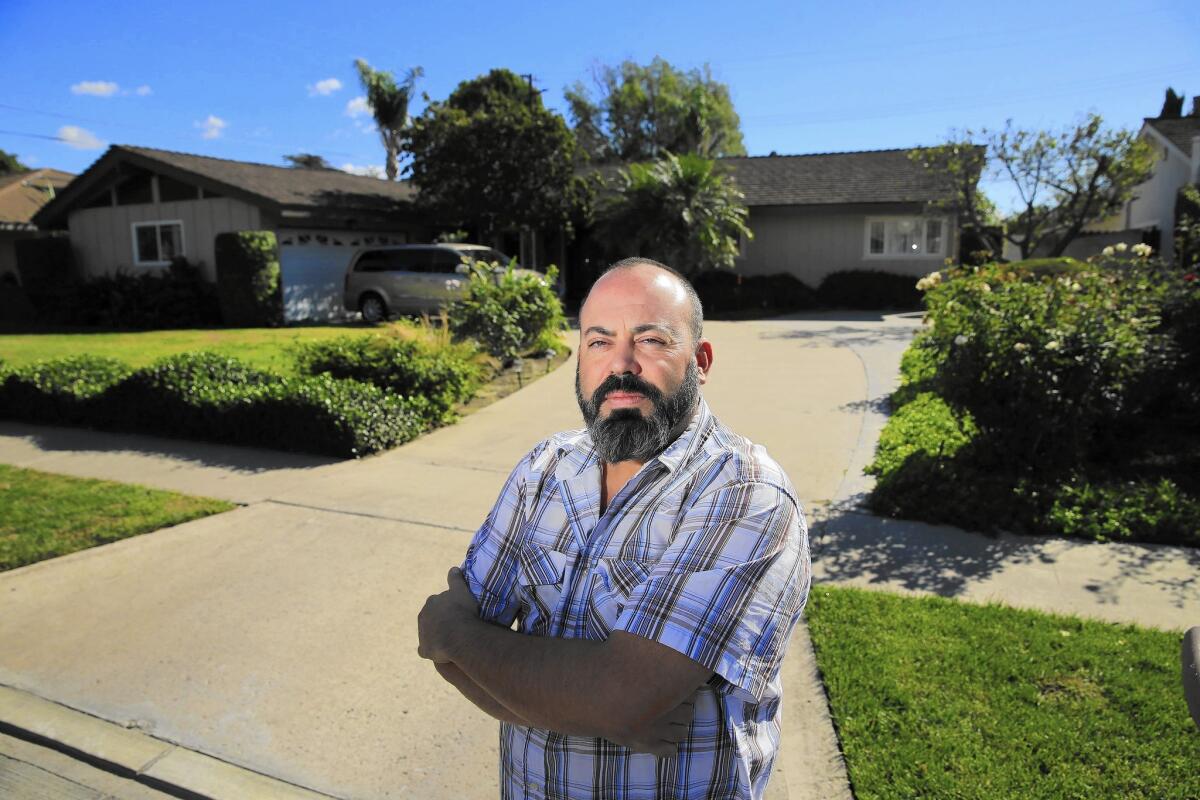Airbnb promises to work with cities to avoid conflicts

Fred Cornejo of Anaheim stands in front of one of seven homes near his that were converted to short-term rentals. They are “totally destroying the neighborhood,” he says.
Only a week after winning a contentious battle over restrictions on short-term rentals in San Francisco, home-sharing giant Airbnb vowed to work with cities and communities to be a good neighbor and pay their “fair share” of local taxes.
“We are 100% committed to being constructive partners with regulatory agencies and policymakers,” according to a document by Airbnb, dubbed “The Airbnb Community Compact.”
Airbnb, along with other online home-sharing businesses, has sparked controversy in popular tourist destinations where critics say residential homes have been turned into mini hotels that generate noise, trash and traffic problems.
Airbnb says the service is a benefit to people who rent their homes on a short-term basis because they collect extra revenue to pay their bills.
In San Francisco, Airbnb spent more than $8 million to help defeat a ballot measure to impose tough restrictions on short-term rentals in the city. In Anaheim, the city council has adopted a moratorium on new short-term rental permits in response to complaints from residents about a surge in the rentals near the Disneyland Resort.
In the “community compact” released Wednesday, Airbnb said it will cooperate with local governments to pay all mandated taxes and will release regular economic activity reports on key markets.
For example, the company said short-term rentals through Airbnb generated $890 million in spending in Los Angeles last year and $510 million in San Francisco.
In addition, Airbnb said it will press short-term rental hosts to abide by local regulations to “help prevent short-term rentals from impacting the availability and cost of permanent housing for city residents.”
An Airbnb spokeswoman said the company’s decision to issue the compact reflects how fast it has grown. Last summer, 17 million people stayed in a home or apartment booked through Airbnb, the company said.
“Tomorrow there will be more people sharing their homes than there are today -- and more the day after that,” the Airbnb compact says. “Home sharing is both a community and a movement.”
But neighbors of short-term rental properties are not appeased by the “compact.”
Anaheim homeowner Fred Cornejo, who lives among seven homes that are routinely rented on a short-term basis, said the only solution to the problem in his city is a change in zoning laws to regulate where short-term rentals can operate.
He described Airbnb’s compact as public relations “spin.”
“They don’t want their business to stop so they say ‘Let’s be good neighbors,’” he said. “It’s nice, but it doesn’t solve the problem.”
To read more about travel, tourism and the airline industry, follow me on Twitter at @hugomartin.







